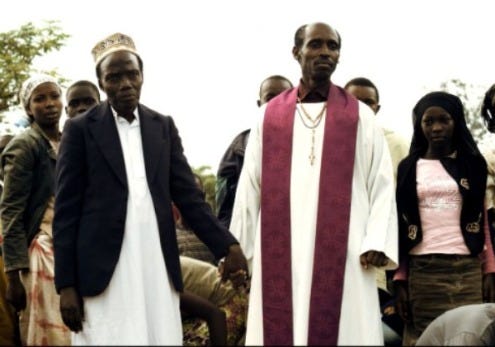Kinyarwanda

For showtimes and more information, click here.
A wrenching drama about the Rwandan genocide, "Kinyarwanda" offers an intimate look at a horrific situation.
For those who don't know, the Rwandan genocide centered around the Hutus and the Tutsi, Rwandan ethnic groups who were wrestling for control of the country. The minority Hutus, who wrestled control of the government from the majority Tutsi, began a campaign of slaughter that left upwards of 800,000 dead. This film details some of the personal stories from the genocide, tales of betrayal, neighbors killing neighbors, husbands and wives finding themselves on different sides of the discussion, and a nation of horrified onlookers.
There is no single protagonist in the film; instead, we get a series of short stories — about a young girl going to a party with her friends, a Hutu priest hiding Tutsi, of soldiers and civilians and killers and victims — all interwoven thematically.
The film's central conceit — telling parallel, intersecting stories of the same events — could easily have been a distraction or come off as gimmicky, but the intersecting points are handled with class and subtlety, feeling natural and not awkward.
But it works, creating a moving tapestry of death, despair, hope and forgiveness. There are unspeakable acts of cruelty and horror and incredible acts of bravery, including one moment where, as a group of Tutsi is about to be executed, a woman steps out into the street pretending to be a witch. The superstitious soldiers, confused, allow their prisoners to escape.
And we do see all sides, including from a re-education camp after the genocide ended, and we hear the tales of distraught men who killed men, women and children, then see some of their deeds and the acts of others. Did they help or harm?
Beautifully shot, the film ultimately is a story of healing, moving past the tragedy and outrage to find justice, and, finally, peace.
